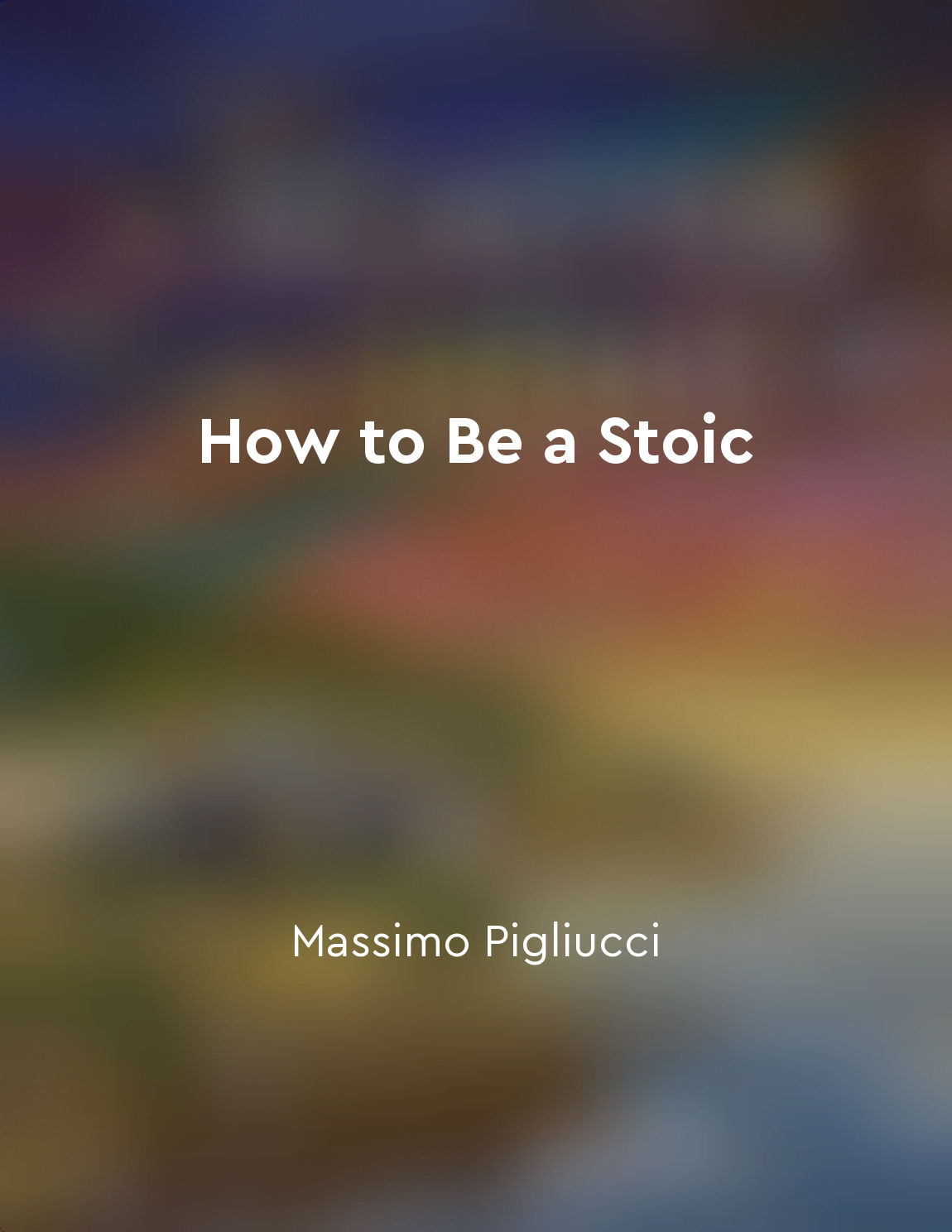Seneca encourages mindfulness and selfreflection from "summary" of Stoic Six Pack - Meditations of Marcus Aurelius and More by Seneca,Marcus Aurelius,Epictetus
Seneca's teachings emphasize the importance of being present in the moment and reflecting on one's actions and thoughts. He reminds us that life is fleeting and that we should not take it for granted. By practicing mindfulness, we can fully experience the present moment and appreciate the beauty of life. Self-reflection is another key aspect of Seneca's philosophy. He encourages us to look inward and examine our thoughts, emotions, and behaviors. By understanding ourselves better, we can make positive changes and live a more fulfilling life. Seneca believes that self-reflection is essential for personal growth and self-improvement. In his writings, Seneca often discusses the importance of cultivating inner peace and tranquility. He suggests that by being mindful and reflective, we can achieve a sense of calm and contentment. By detaching ourselves from external distractions and focusing on our inner world, we can find true happiness and fulfillment. Seneca's teachings on mindfulness and self-reflection are closely related to the Stoic philosophy of living in accordance with nature. He encourages us to align our thoughts and actions with the natural order of the universe. By practicing mindfulness and self-reflection, we can better understand our place in the world and live in harmony with the cosmic order.- Seneca's emphasis on mindfulness and self-reflection serves as a guide for living a more meaningful and fulfilling life. By being present in the moment, examining our inner world, and aligning ourselves with nature, we can cultivate inner peace and happiness. Seneca's teachings continue to inspire readers to strive for self-improvement and personal growth.
Similar Posts
Stoicism teaches the importance of virtue
Stoicism places a strong emphasis on the importance of virtue in leading a good and fulfilling life. According to the Stoics, v...
Cultivation of wisdom through selfreflection
The path to wisdom, according to Seneca, is not found in the pursuit of external knowledge or the accumulation of facts, but ra...
Let go of attachments to material possessions
The concept of detaching oneself from material possessions is a fundamental principle of Stoicism, as espoused by Seneca in his...

Seneca discusses the role of adversity in shaping character
Seneca and Marcus Aurelius both emphasize the importance of adversity in the formation of one's character. They argue that it i...

Marcus Aurelius stresses the importance of living in accordance with reason
Marcus Aurelius emphasizes the significance of aligning one's life with reason. He believes that living in accordance with reas...
Control your emotions
The key to living a good life, according to the stoic philosophy, is to maintain control over our emotions. This means not allo...

Focus on developing virtue and inner strength
The ancient Stoics believed that the key to a good life lies in focusing on the development of one's own character, particularl...
Be content with what you have
Seneca advises us to be content with what we have, rather than constantly craving for more. He believes that true happiness lie...
Emotions play a crucial role in moral decisionmaking
In ethical decision-making, emotions are often viewed as hindrances to rational judgment. However, this perspective fails to ac...
Cultivate a sense of purpose and meaning
Developing a sense of purpose and meaning is essential to living a fulfilling and meaningful life. When we have a clear sense o...

